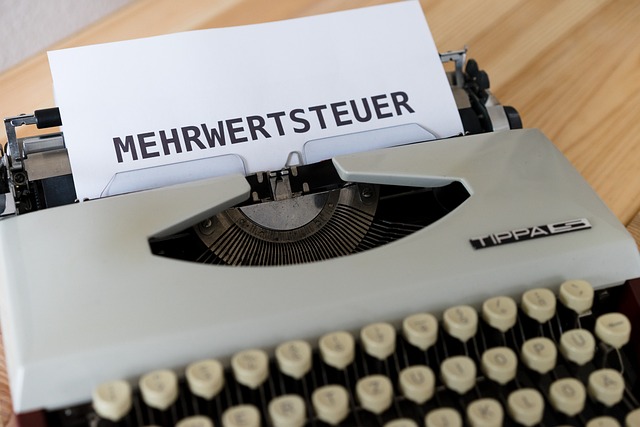In the UK education sector, accurate textbook translations are vital for multicultural societies to ensure equal learning opportunities. Specialized UK Educational Textbooks Translation Services employ professional translators who balance academic rigor and cultural adaptability. Challenges include adapting British academic terminology and nuanced cultural content across diverse subjects like science, math, history, and literature. Experience, expertise, and industry standards are key when selecting a translation service. Best practices involve leveraging native speakers, translation memory tools, and consistent terminologies for accuracy and cultural sensitivity. Digital age innovations like Neural Machine Translation (NMT) speed up processes while maintaining reliability. Successful projects demonstrate the positive impact on inclusive learning environments, highlighting the critical role of UK Educational Textbooks Translation Services in preserving content and context for diverse student populations.
In today’s globalized educational landscape, ensuring quality translations of educational materials is paramount. This article explores the critical importance of accurate and culturally sensitive translations in UK educational textbooks, addressing challenges unique to this context. We delve into essential considerations for selecting reputable translation services, best practices to safeguard translation integrity, and the role technology plays in enhancing overall quality. Through case studies of successful projects, we highlight effective strategies for UK educational textbook translation services.
- Understanding the Significance of Quality Translations in Education
- Challenges in Educational Textbook Translation: A UK Perspective
- Essential Considerations for Choosing a Reputable Translation Service
- Best Practices to Ensure Accurate and Culturally Sensitive Translations
- The Role of Technology in Enhancing Translation Quality
- Case Studies: Successful Educational Translation Projects in the UK
Understanding the Significance of Quality Translations in Education

In the realm of education, language plays a pivotal role in knowledge transfer and cultural understanding. Quality translations are not merely about converting words from one language to another; they ensure that educational content is accessible, culturally sensitive, and maintains its integrity. This is especially crucial for UK educational textbooks, which often serve as primary resources for students across diverse linguistic backgrounds. Accurate translations facilitate equal opportunities for learning, ensuring that every student can engage with the curriculum on a level playing field.
The significance of quality translations in education cannot be overstated, particularly in multicultural societies. Inaccurate or poorly translated materials can lead to misunderstandings, miscomprehensions, and even hinder academic progress. UK Educational Textbook Translation Services are designed to address these challenges by employing professional translators who not only grasp the nuances of both source and target languages but also have a deep understanding of educational concepts. This specialized approach guarantees that translated textbooks maintain their academic rigor while adapting effectively to different cultural contexts.
Challenges in Educational Textbook Translation: A UK Perspective

The process of translating educational textbooks is a complex task, especially in the UK where maintaining academic integrity and precision is paramount. UK Educational Textbooks Translation Services face unique challenges due to the high standards set by the country’s education system. One significant hurdle is adapting content to suit both cultural nuances and the specific terminology used within British academic circles. This requires not just linguistic expertise but also a deep understanding of the subject matter to ensure accurate representations of complex ideas.
Moreover, educational translation involves more than just word-for-word substitutions. It demands the ability to convey technical concepts in a clear and coherent manner while maintaining the original text’s structure and flow. With a vast array of specialized subjects, from science and mathematics to history and literature, translators must be adept at navigating these diverse domains. This challenge is further compounded by the constant evolution of educational methodologies and content, demanding agile translation services that can keep pace with changing curricula.
Essential Considerations for Choosing a Reputable Translation Service

When selecting a translation service for educational materials, especially in the UK, it’s paramount to consider a few key factors to ensure quality and accuracy. First and foremost, look for companies with extensive experience in translating educational content, particularly textbooks. Reputable firms will have a team of expert translators who specialize in this field, ensuring they understand the nuances of academic language and terminology.
Additionally, check their qualifications and certifications. UK Educational Textbook Translation Services should adhere to industry standards and have credentials that demonstrate their proficiency. Professional translation bodies or associations often set quality guidelines, so it’s beneficial to choose a service that aligns with these standards. This guarantees that the translated materials will be of high caliber and meet the rigorous demands of educational institutions.
Best Practices to Ensure Accurate and Culturally Sensitive Translations

When it comes to UK educational textbooks translation services, accuracy and cultural sensitivity are paramount. To ensure high-quality translations, professionals should adhere to best practices such as employing native speakers or translators with subject-matter expertise for specialized content like education materials. This approach guarantees not only grammatical correctness but also an understanding of idiomatic expressions and cultural nuances.
Additionally, utilizing translation memory tools and maintaining a consistent terminology database is essential. These methods help maintain coherence across large documents and ensure consistent rendering of technical terms. Quality assurance checks at each stage of the translation process are also vital to catch potential errors or misinterpretations early on. This includes peer review, proofreading, and editing by experts who can identify cultural appropriateness and academic precision.
The Role of Technology in Enhancing Translation Quality

In today’s digital age, technology plays a pivotal role in enhancing the quality of educational translations, particularly for UK educational textbooks. Advanced translation software and machine learning algorithms have revolutionized the process, enabling faster and more accurate results than ever before. These tools can efficiently handle large volumes of text, identify complex linguistic patterns, and ensure consistent terminology across different subjects and disciplines.
For example, UK educational textbook translation services can leverage neural machine translation (NMT) models that capture the nuances and context of source materials, leading to more natural-sounding translations. Additionally, automated quality assurance (QA) checks help identify and rectify errors, further improving overall translation quality. This technological intervention not only saves time but also ensures a high standard of accuracy, making translated educational content accessible and reliable for students and educators alike.
Case Studies: Successful Educational Translation Projects in the UK

Successful educational translation projects within the UK highlight the significance of high-quality translations in fostering inclusive learning environments. Case studies demonstrate that tailored approaches to translating UK educational textbooks can significantly enhance accessibility and comprehension for non-native English speakers. For instance, a recent project focused on translating science texts for a diverse student population, employing linguistically accurate yet accessible language to ensure students from various linguistic backgrounds could grasp complex scientific concepts effectively.
Another notable example involves the translation of history textbooks, where cultural nuances were carefully considered to preserve the integrity of historical narratives. This involved close collaboration between linguists and historians to accurately convey not only the factual content but also the cultural context, ensuring that the translated materials remained true to the original intent and value. These projects underscore the vital role of specialized UK educational textbooks translation services in creating inclusive learning resources that cater to a diverse student population.
In ensuring quality within UK educational textbook translation services, a multifaceted approach is essential. By understanding cultural nuances, overcoming challenges specific to the UK context, and leveraging technology, we can foster accurate and culturally sensitive translations that enrich educational experiences. Choosing reputable service providers and implementing best practices are pivotal steps towards achieving excellence in this domain, ultimately enhancing the quality of education for all students.
